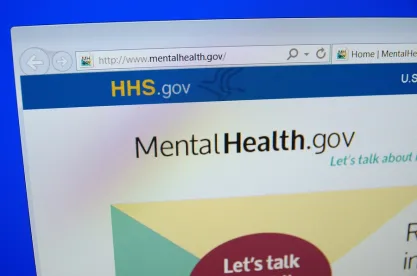On December 3, 2020, Health and Human Services (HHS) Secretary Alex. M. Azar II issued a fourth amendment to his original Public Readiness and Emergency Preparedness (PREP) Act Declaration, which was issued on March 10, 2020, and published in the Federal Register on March 17, 2020. The newest amendment is a blockbuster for addressing current disputes involving federal jurisdiction for courts hearing disputes about the PREP Act’s application to claims for injury, and further suggests an intention for a broad application of the PREP Act, including for claims where covered countermeasures for COVID-19 have not been administered to claimants due to shortages or other limitations relating to the distribution of those countermeasures.
By way of background, the PREP Act is a statute passed in 2005 that is activated in response to a public health emergency, such as the current COVID-19 pandemic, through a Declaration by the HHS Secretary. The PREP Act provides immunity and preempts state law negligence claims against Covered Persons who are sued for claims of injury arising out of or relating to the administration or use of covered countermeasures designed to prevent, treat, cure, diagnose, mitigate or limit the harm from (in this case) COVID-19 or the coronavirus that causes it. Thus, in his original Declaration, the HHS Secretary triggered this immunity for Covered Persons who may be sued in connection with the use or administration of covered countermeasures in connection with the current coronavirus pandemic.*
In recent months, numerous federal court opinions have been issued rejecting federal jurisdiction for matters in which defendants, primarily residential health care facilities, have raised the PREP Act as a defense to claims of negligence arising out of COVID-19-related injuries. These include Maglioli v. Andover Subacute Rehabilitation Center, 2020 U.S. Dist. LEXIS 145055 (D. N.J. August 12, 2020); Gunter v. CCRC OPCO-Freedom Square, LLC, 2020 U.S. LEXIS 201622 (M.D. Fla. October 29, 2020); Sherod v. Comprehensive Healthcare Mgmt. Servs. LLC, 2020 U.S. Dist. LEXIS 191885 (W.D. Pa. October 16, 2020); and Block et al. v. Big Blue Healthcare, 2020 U.S. Dist. LEXIS 150012 (D. Kansas August 19, 2020).
In these cases, the courts have found that allegations outside of the specific use or actual distribution of countermeasures would not trigger PREP Act immunity, and therefore the PREP Act does not preempt the field of potential state law negligence claims such that federal jurisdiction is warranted or required. As a result, these courts denied application of the PREP Act ‒ and therefore federal ‒ immunity protection to nursing homes for claims that they failed to prevent transmission of the virus by failing to use or properly use countermeasures, including following infection control or prevention protocols.
In the HHS Secretary’s latest amendment to the PREP Act, these holdings are roundly rejected.
First, in Section IX of the Amended Declaration, the HHS Secretary wrote:
The Secretary amends Section IX to make explicit that there can be situations where not administering a covered countermeasure to a particular individual can fall within the PREP Act and this Declaration’s liability protections.
This is significant because the aforementioned cases, and in particular Maglioli, as well as an early case involving the PREP Act out of New York called Casabianca, held that the failure to provide a countermeasure precluded coverage under the PREP Act. As the HHS Secretary notes in this amendment to the Declaration, and in prior Advisory Opinions about this PREP Act Declaration (which are explicitly incorporated into the most recent amendment to the HHS Secretary’s PREP Act Declaration) the term “administration” is to be broadly construed to include management of the distribution of countermeasures, which can include decisions that lead to the failure to actually distribute a countermeasure to a particular person (or claimant). This current amendment to the HHS Secretary’s PREP Act Declaration “make(s) explicit” the intention that the failure to distribute a countermeasure can nonetheless lead to immunity under the PREP Act.
Second, and perhaps more significantly, the amendment to the PREP Act Declaration in Section XI makes the following “explicit” statement regarding federal jurisdiction over PREP Act‒related claims:
The Secretary makes explicit in Section XI that there are substantial federal legal and policy issues, and substantial federal legal and policy interests in having a unified whole-of-nation response to the COVID-19 pandemic among federal, state, local, and private-sector entities. The world is facing an unprecedented global pandemic. To effectively respond, there must be a more consistent pathway for Covered Persons to manufacture, distribute, administer or use Covered Countermeasures across the nation and the world. Thus there are substantial federal legal and policy issues, and substantial federal legal and policy interests within the meaning of Grable & Sons Metal Products, Inc. v. Darue Eng’g. & Maf’g., 545 U.S. 308 (2005), in having a uniform interpretation of the PREP Act… Through the PREP Act, Congress delegated to me the authority to strike the appropriate Federal-state balance with respect to particular Covered Countermeasures through PREP Act declarations.
The reference to the Grable & Sons Supreme Court case is particularly meaningful. It is a case routinely cited by defendants in trying to convince federal courts that the determination regarding application of the PREP Act must be made in a federal forum because of the federal interests and issues at stake in making this determination. In that case, the U.S. Supreme Court held that federal-question jurisdiction applies where the dispute implicates “significant federal issues.” The Supreme Court stated that this doctrine “captures the commonsense notion that a federal court ought to be able to hear claims recognized under state law that nonetheless turn on substantial questions of federal law, and thus justify resort to the experience, solicitude, and hope of uniformity that a federal forum offers on federal issues.” 545 U.S. at 312.
In making the statements in this amendment to the HHS Secretary’s Declaration on the need for uniform interpretation of the PREP Act, and by twice noting the implication of substantial federal issues and interests, the HHS Secretary is leaving no doubt to his intention that cases that implicate the PREP Act must be adjudicated by federal courts.
The United States Supreme Court has generally required courts to defer to administrative agency interpretations of statutes where it is up to the federal agency to administer a federally created program. This is typically referred to as either Chevron or Skidmore deference, following the Supreme Court cases that have established these rules. See Chevron, Inc. v. NDRC, Inc., 467 U.S. 837, 843 (1984); Skidmore v. Swift & Co., 323 U.S. 134 (1944). Here, the PREP Act provides immunity for Covered Persons who are or would be sued for state court negligence claims, and instead offers a no fault compensation program administered by HHS, called the Countermeasure Injury Compensation Program (CICP). The CICP has been fully funded under the Coronavirus Aid, Relief, and Economic Security (CARES) Act to address countermeasure injuries associated with COVID-19. Accordingly, this latest amendment to the HHS Secretary’s PREP Act Declaration should warrant considerable deference by federal courts moving forward. The HHS Secretary suggests as much in the final sentence of the quoted passage above, where he declares that Congress has given him the authority to determine the need for federal jurisdiction when it provided him with the power to make PREP Act declarations.
The upshot of this latest amendment to the PREP Act Declaration is that it offers defendants, including residential nursing facilities, which have seen the brunt of litigation so far involving COVID-19-related injuries, with more firepower to secure application of the PREP Act protections in response to state court negligence claims, and to have these issues addressed in federal courts.




 />i
/>i

